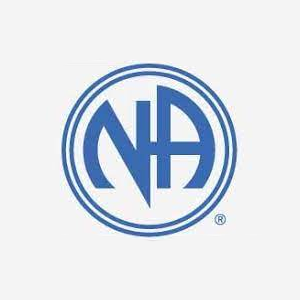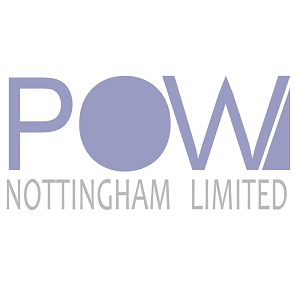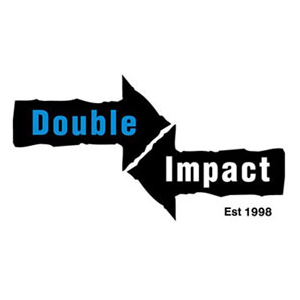Drug & Alcohol Rehab in Nottinghamshire

How Does Rehab Work?
Rehab involves the support services and therapies that those that have drug and alcohol dependence receive to overcome addiction and subsequent relapse. After a medical assessment and detox are completed, individuals will start addiction treatment in the form of therapy. Treatment is made up of therapy from a professional counsellor, the attendance of group meetings as with a 12 Step programme, and the option of inpatient or outpatient rehabilitation. Inpatient rehab services require that clients live at the residence or centre for the period of therapy. Outpatients will attend therapy by counselling or meetings but will not stay at the facility. Consultation with a medical professional along with an individual assessment can help see whether inpatient or outpatient services are suitable for your needs.
What Happens During Residential Rehab?
Taking the brave step towards recovery starts with rehabilitation. It is a process, and it takes time but with dedication and support relapse can be prevented. If you’re unsure about what rehab entails, we provide a breakdown of what to expect.
Rehab occurs in phases. It starts with a medical assessment. Individuals must be professionally assessed to help staff understand the nature of your addiction, its history and comorbid disorders (such as anxiety or schizophrenia). The information obtained from the assessment is used to create a unique therapy programme for you. Because every person is different, a personalised treatment plan will help provide a more tailored programme that meets your needs and requirements.
An assessment is followed by detox. Detox is a formal process and is performed in a residential rehab or at home with support from a medical professional (outpatient services). During this period, individuals abstain from drugs and/or alcohol use until the substance is no longer present in the system. Because of the challenges associated with withdrawal, a medically supervised detox from drugs and alcohol is recommended.
Therapy is an important part of rehab and every aspect of addiction treatment must be tailored to address individual backgrounds, addictions, and circumstances. Interventions can range from private counselling and cognitive behavioural therapy to developing coping strategies, skills, and attending group meetings.
1. Assessment

A complete medical assessment is an initial step to receiving the appropriate treatment during rehab. If you are looking into inpatient treatment, you can expect a telephone assessment by an admissions coordinator. The telephone assessment will provide the treatment facility with the information needed to develop a unique treatment plan. The medical support staff will also have the information to manage individuals through the phase of detox.
When you’re ready to pursue treatment for drug and alcohol addiction, a medical assessment needs to be completed. Assessments will guide therapy because it provides staff with the information, they need to develop a tailored treatment plan or advise on the appropriate intervention.
2. Detox

If you are addicted to drugs and/or alcohol or you have a substance in your body, you must undergo detox before you can proceed with a recovery programme. Detox is performed in an inpatient facility or a medical facility. During detoxification, the drug is gradually cleared from the body which usually results in withdrawal symptoms.
Detox is necessary where substance abuse and dependency are present. It should be managed by experienced and knowledgeable medical staff to limit uncomfortable and severe withdrawal symptoms. For those who go through withdrawal, there is a greater risk of relapsing if not managed within a rehab clinic. In a residential setting, qualified staff may offer detox medication to minimise difficult withdrawal. The approach for therapy, once detox is completed, is determined by the assessment.
3. Therapy

Therapy is sought when the body is cleared of substances and/or alcohol. The choice of being assigned to an inpatient or an outpatient service will depend on the individual assessment, budget, and life commitments. Therapy that is offered in treatment ranges from individual counselling with a therapist, the attendance of group therapy, and emphasis on developing positive coping mechanisms and life skills.
Step by Step Process for Residential Rehab
To understand your medical and mental health history.
Arrange a suitable date to begin your journey to recovery.
Begin the managed withdrawal process from substances including alcohol.
To understand the root cause of addiction and how to overcome it.
Aftercare is provided to help manage the risk of relapse.
To help heal the wounds that addictive behaviour has caused others.
Find your Nearest Rehab Centre in Nottinghamshire
The nearest rehab centre is Addiction Rehab UK – Drug & Alcohol Rehab Nottingham.
Address: Addiction Rehab UK – Drug & Alcohol Rehab Nottingham, Vernon House, 109 Friar Ln, Nottingham NG1 6DQ, United Kingdom
Call 0333 4444 432 to discuss your alcohol or drug rehab requirements and any other questions you may have about the process of residential rehab.
Outpatient Addiction Services in Nottinghamshire
Inpatient or outpatient treatment for addiction can be determined by your budget requirement & individual circumstances. Nevertheless, it is an individual process that requires full commitment and awareness to succeed. To help you understand these different options, we look at outpatient addiction treatment services compared to residential treatment.
When you are accepted into an outpatient service, you will be required to meet with a therapist, support counsellor, or group worker once or twice a week. Rather than stay at the residence, you can continue to attend to work commitments and care for your family while you receive treatment for addiction.
PrivateOutpatient care involves individual counselling with a therapist. You are expected to travel to the therapist and engage in hour-long treatment sessions. Aside from private therapy, you can also find free services from charities and government-backed organisations to address substance addictions.
NHS Free Addiction Services in Nottinghamshire

Ground Floor Crown House Newcastle Avenue Worksop Nottinghamshire S80 1ET
WebsiteThe Benefits of Outpatient Services
Private outpatient programmes are tailored to the individual’s needs. The purpose is to provide optimal standards of care and intervention for recovery from addiction. – Outpatient support is considered flexible because individuals with family/work commitments can continue to manage these areas of life while attending 1 or 2 therapy sessions per week. – It is also more affordable in comparison to residential treatment services.
The Challenges of Outpatient Services
While outpatient programmes play an important role in accessible addiction treatment, it is also associated with a higher incidence of relapse. While free outpatient services do exist through the NHS or UK based charities, waiting times are to be expected and treatment tends to be more generic.

How Much Does Rehab Services Cost in Nottinghamshire?
Alcohol and drug addiction treatment within a residential centre can cost between £1500 – £4000 per week. Residential rehab is one of the costlier types of treatment for drug and alcohol addiction. For free and cost-effective services, charity organisations and government-funded services offer care programmes for all individuals seeking help with alcohol or drug addiction.
Fortunately, free programmes are provided by organisations including the NHS and charities such as Turning Point (that requires self-referrals). Other organisations that provide free and community-based programmes for drug or alcohol addiction include Alcoholics Anonymous (AA), Cocaine Anonymous, and Narcotics Anonymous.
Support Groups in Nottinghamshire

There is a Solution
1 Chestnut Grove Nottingham NG3 5AD UK

Living Clean Group
St Andrews Church Goldsmith Street Nottingham Nottinghamshire

LADIES MEETING Group
St Barnabas Cathedral House North Circus Street Nottingham Nottinghamshire NG1 5AE
The Pros and Cons of Seeking Treatment in Your Local Area
Pros
1. You are familiar with the area which may provide a layer of comfort/safety.
2. Family or friends can easily travel to visit or are close by.
3. You may save on the costs of travelling long distances for treatment, or free services may only be offered in your area of residency.
Cons
1. A local environment means access to drug dealers or other triggers. This is more of an issue if you decide upon outpatient programmes.
2. Failing to consider locations outside your local area could equate to a missed opportunities for more valuable and rewarding programmes.
3. Addiction treatment programmes that are close by do not always offer the best standard of treatment.
If you are unsure of how to look for a rehab service you can trust, consider the CQC. The CQC website offers listings of rehabilitation services and organisations that are ranked according to the standard of its services.


